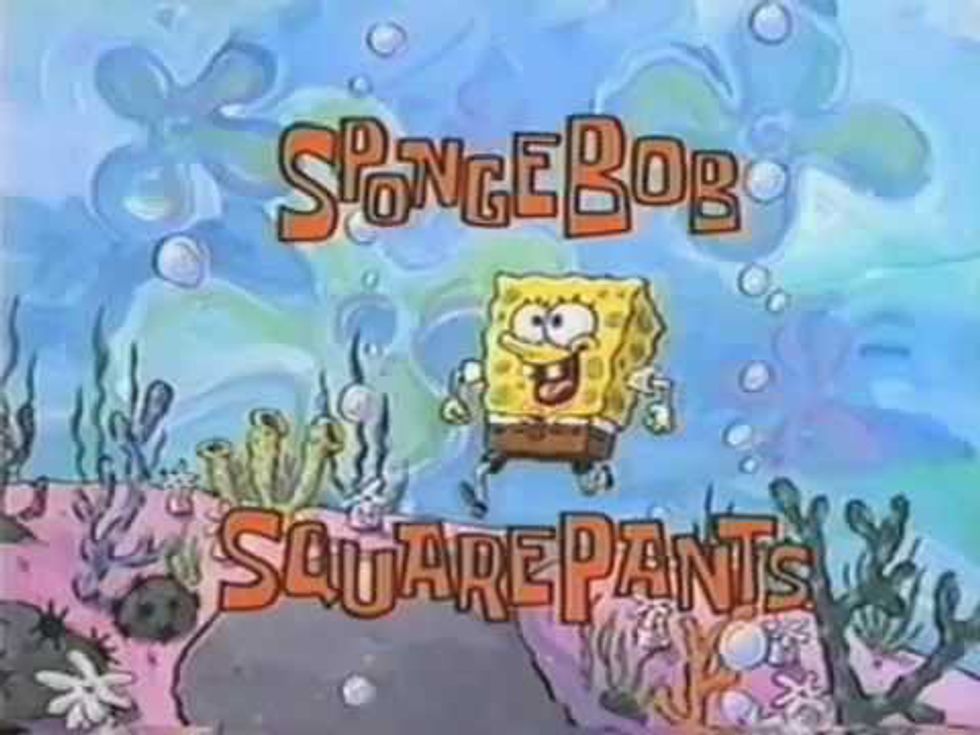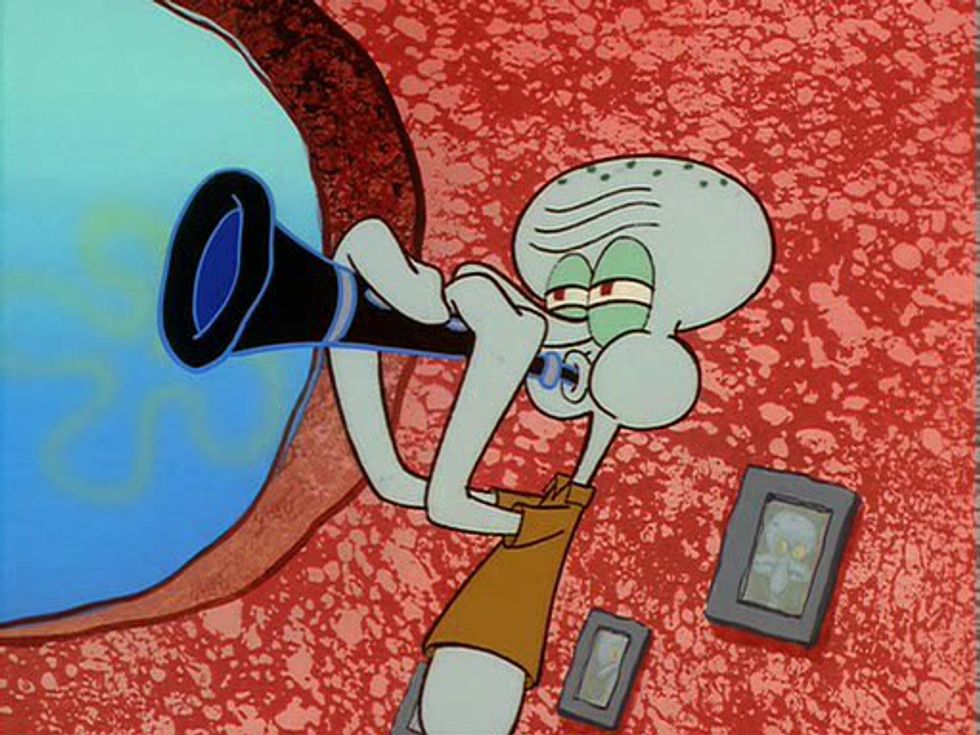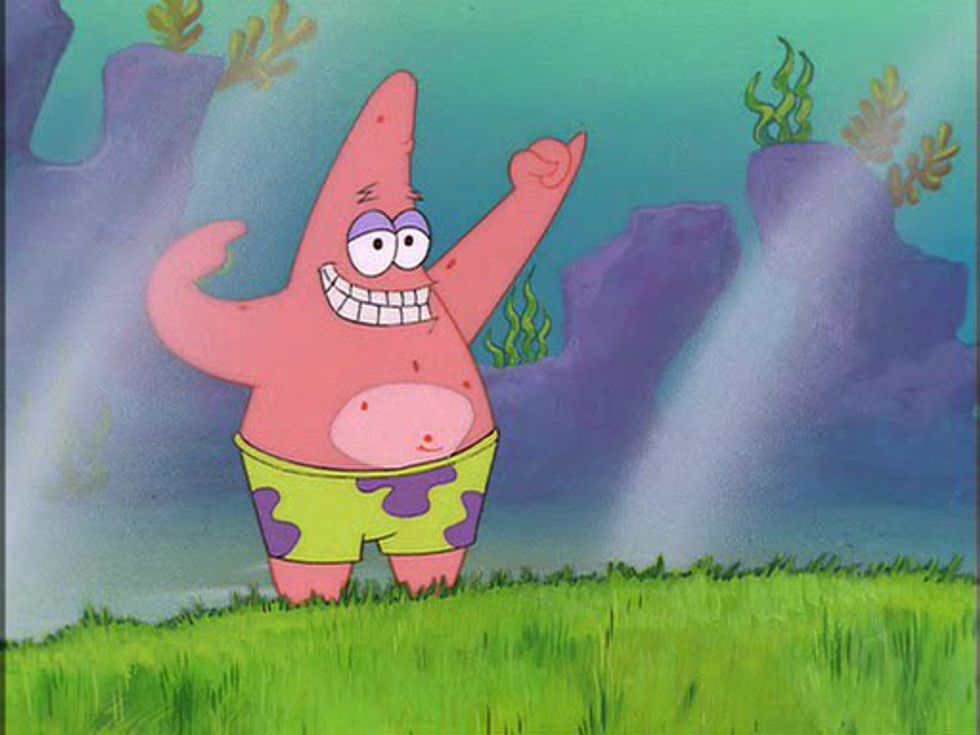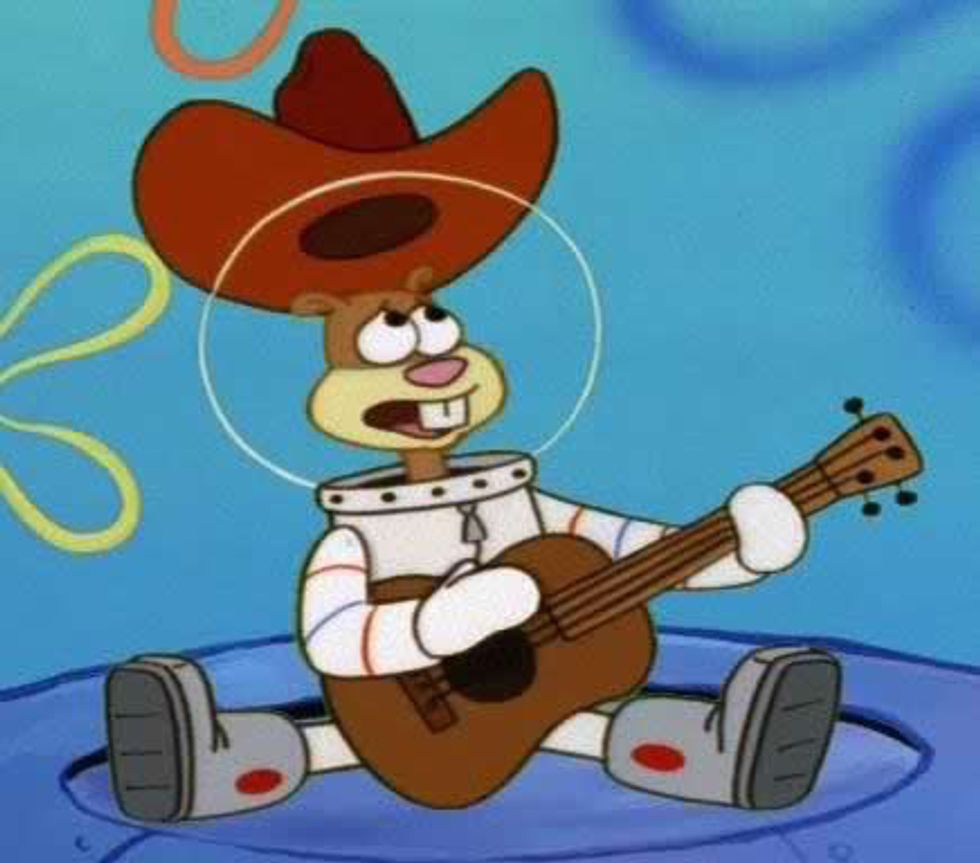Back in the late 1990s, an animated TV show called "Spongebob Squarepants" aired on Nickelodeon. Shortly after, it became a huge hit for audiences throughout the United States. Eventually it reached out to an international network and became a well-known staple for children growing up in the '90s. The characters were dynamic and well crafted by the creator, Stephen Hilenburg, because we saw the characters grow throughout the TV show’.
For example, there is a theory about Squidward Tenticles, who towards the end of the episode “Bubble Stand” plays a soulful solo on his clarinet and ends up floating away in a gigantic bubble, becoming tone deaf. When the bubble pops, his house falls back into place, but Squidward’s clarinet playing has definitely weakened because we hear sour notes being played as the episode ends. Every episode after “Bubble Stand,” Squidward is not able to play nearly as beautifully as he once did before. These types of theories were things that audience members started to notice because of how developed and thought out the characters were.
After three successful seasons of “Spongebob Squarepants,” with approximately 120 episodes , there was a release of “The Spongebob Squarepants Movie" in 2004. Following the film, new writers of the TV show continued writing episodes and the original creator, producer, and writer of "Spongebob" signed off. He wanted to end the golden age of the beloved TV show altogether after the movie was produced. Thus, without Stephen Hillenburg, the decline of "Spongebob Squarepants" began.
In season four, "Spongebob" starts looking grim because of the characters. Characters are starting to be characterized using a basic adjective. For example, Patrick Star is just known for being dumb. Originally, Patrick Star is known for some of his intelligent responses like coaching Spongebob through his driver’s ed exam. He’s known to be humorous, loveable, caring, supportive, and innocent. But now, he’s just looked at for being dumb, and it doesn’t go far beyond that.
This also includes Sandy Cheeks who was the female character of the TV show. She has Texas pride, she’s smart, and is a caring friend for Spongebob, and she evenly matched Spongebob in karate, creating a sense of gender equality. Now, all she talks about is science, and she’s frankly obsessed with her crazy experiments. She’s not nearly as memorable as she used to be, and throughout the years she became less and less significant.
Like any memorable TV show, "Spongebob Squarepants" should have ended after their movie or at least after season four. It has helped the Nickelodeon channel, but not the show’s dignity. It was Stephen Hilenburg’s intention to end on a strong note with Spongebob and Patrick finally proving themselves as adults, being confident, and marking themselves as “not just kids.” This would end the era of "Spongebob" for the millennials. Ending the show after the movie would have left a greater impact on the children who grew up with "Spongebob" and they wouldn’t be forced to remember it as a childhood classic that finally tanked.
























